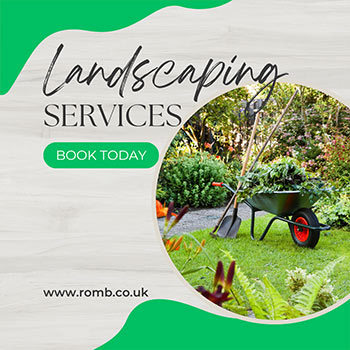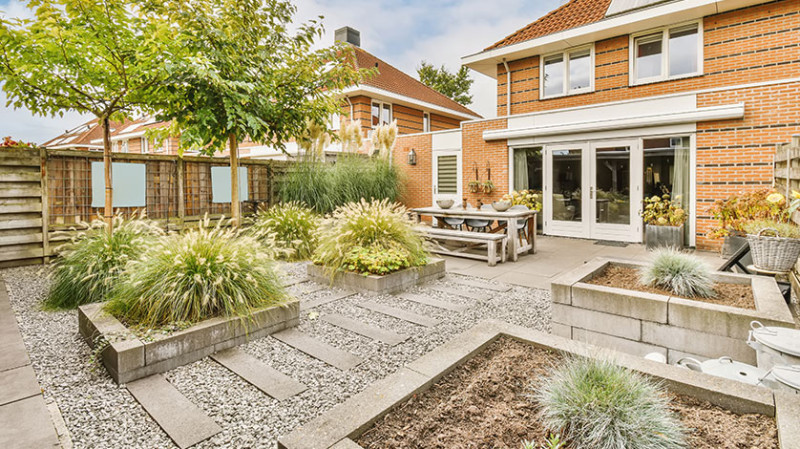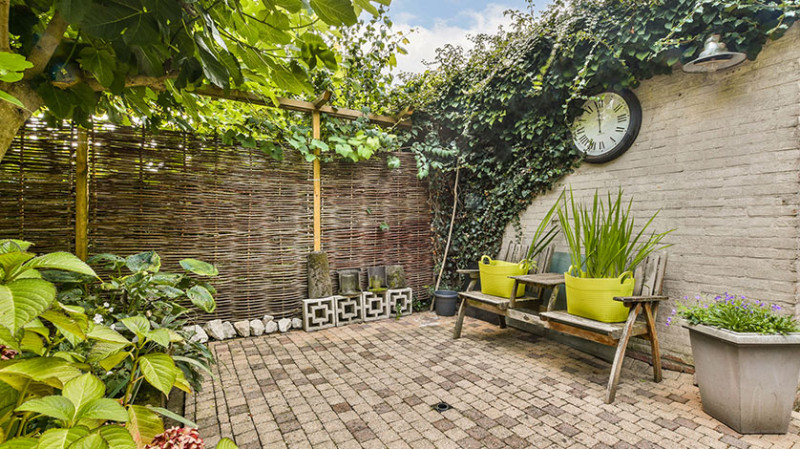
Starting a landscaping business may seem daunting, especially if you believe you need a heap of cash to get going. But what if I told you it was possible to launch your own landscaping company with virtually no money? In fact, that’s exactly what I did. I left my 9-to-5 job, rolled up my sleeves, and within months, built a profitable business using little more than my passion, a bit of creativity, and some savvy resourcefulness. If you're a DIY enthusiast, a skilled tradesperson, or even a designer looking to branch out in the UK, this post is your roadmap.
Why Landscaping? Why Now?
Landscaping is one of the few industries where demand stays strong throughout the year. Especially in the UK, homeowners, developers, and even corporate clients are constantly looking to enhance their outdoor space, whether it's for kerb appeal, entertaining, or functional garden living.
With increased focus on outdoor aesthetics following the pandemic, more people are investing in their gardens like never before. Trends around sustainability, outdoor living rooms, and self-sufficient gardens such as vegetable patches and compost areas are rapidly rising. This creates a golden opportunity for would-be landscapers with an eye for detail and a bit of grit.
The best part? Landscaping is a service-based business. This means you don’t need a storefront or expensive upfront inventory. You’re selling your skills, your time, and your creativity—and this can be done without any initial financial capital.
Now is the perfect time to act. The landscaping season in the UK peaks between March and October, giving you plenty of greenery to work with and eager clients ready to pay.
Step 1: Develop a Business-Friendly Mindset
The first tool you need isn’t a shovel—it’s your mindset. Quitting your job to start a landscaping business isn’t easy, but it is possible if you believe in your ability to succeed. The key is to begin thinking like a business owner rather than an employee.
This means setting your own goals, managing your time wisely, and always looking for opportunities. See every garden as a blank canvas, and every conversation as a potential lead.
I started by offering to mow lawns and clean up gardens for friends and family on weekends. It wasn’t glamorous, but it helped me gather experience, take photos of my work, and build the confidence I’d need to pitch larger clients later.
Removing fear and focusing on learning is crucial. You don’t need to know everything. Research online, watch tutorials, and talk to professionals—education is freely available, and the sooner you start, the faster you’ll grow.
Step 2: Start With Tools You Can Borrow or Rent
One of the biggest barriers people assume is lack of equipment. Yes, landscaping can involve expensive tools, but you don’t need to buy them all out of pocket.
Start by borrowing: ask around—friends, neighbours, even family members often have unused garden tools collecting dust. A basic setup with a lawn mower, strimmer, spade, rake, and wheelbarrow can be enough to get started.
If borrowing isn’t an option, consider renting or using community tool libraries. It’s more affordable and makes sense when cash flow is limited.
As the jobs roll in and the revenue increases, you can reinvest in purchasing your own tools slowly. Don’t feel pressured to get flashy kit early on; start lean and grow sustainably.
Step 3: Build a Simple Portfolio and Social Proof
Before someone hires you, especially if you're new, they want to know you're capable. Start by doing a few small jobs for free or at discounted rates to build your portfolio. Take plenty of photos—before and after shots truly sell your work.
Use social media to your advantage. Set up a free Instagram and Facebook page and post regularly. Showcase your work and give tips—this establishes you as an expert and gains you visibility.
Even a one-page website built through free platforms with your contact info, a few testimonials, and photo gallery can put you ahead of 80% of other beginners. Use platforms like Wix or WordPress to get set up virtually free.
When you complete jobs, always ask for a review. Whether it’s on Google, Facebook, or as a short written testimonial, every bit of social proof reinforces your legitimacy to new clients.
Step 4: Offer Services People Actually Need
Your chance of success increases dramatically if you offer services based on demand rather than personal preference. Here in the UK, seasonal time-critical services such as:
- Grass cutting & lawn care
- Hedge trimming & tree pruning
- Pressure washing patios & driveways
- Garden clearance & waste removal
- Turfing & seeding
...are always in demand. Offering these basic services can help you quickly establish cash flow.
Later, you can expand into higher-end services like paving, decking, fencing, or garden design. Always ask your customers what they really need—it can lead to more work and larger contracts.
Step 5: Marketing Without Money
Forget expensive flyers or Google Ads if you’re on a budget. Instead, focus on grassroots strategy:
- Join local Facebook community groups and offer your services.
- Set up a free Google Business Profile with your location and contact info.
- Print out a few leaflets on your home printer and post them through local letterboxes.
- Ask previous clients or friends to recommend you – word of mouth is a powerful currency in local business.
When I started, I got my first 5 clients from a single Facebook group post. Don’t underestimate the power of social networks in tight-knit UK communities, especially in suburban areas.
Step 6: Register Properly and Stay Legal
Even as a solo one-person start-up, it's important to trade legally. Register as a sole trader with HMRC; it’s free and takes about 10 minutes. Keep basic records using spreadsheets or free accounting tools like Wave or QuickFile.
You may also need liability insurance, especially if you work with members of the public. Some agencies offer monthly payment options so you don’t need to pay everything upfront.
If you're handling garden waste, you must register for a Waste Carrier License with the Environment Agency (costs about £154 for 3 years). It’ll help build trust as well as keep you on the right side of regulations.
Step 7: Grow With Confidence And Strategy
Once you start seeing steady cash flow, reinvest profits wisely. Buy better tools, upgrade your vehicle, and potentially bring in help as demand increases.
Use a simple pricing table to keep quotes consistent and professional. Here’s an example starting point:
| Service | Typical Price (UK) | Time Required |
|---|---|---|
| Lawn Mowing (Small Garden) | £20 - £30 | 30 minutes |
| Hedge Trimming | £40 - £80 | 1 - 2 hours |
| Garden Tidying | £60 - £150 | 2 - 4 hours |
| Pressure Washing | £80 - £200 | 2 - 5 hours |
Keep improving your offer and understanding of customer pain points. Add simple upsells like maintaining gardens on a monthly basis to generate recurring income.
Final Thoughts: How This Changed My Life
Walking away from the security of a fixed wage was terrifying. But nothing compares to the empowerment of creating your own income and shaping your own future. Today, I earn more than I ever did at my old desk job—and with far more satisfaction.
If you’re sitting at your desk or in your van wondering if now is the right time—let me tell you it is. You don’t need thousands of pounds to start. You need drive, patience, resourcefulness, and courage.
Start small, dream big, and grow steadily. If you’re passionate about working outdoors, solving problems, and making clients happy—there’s a place for you in the UK’s booming landscaping industry.
And you never know—like me, you might just change your life.






